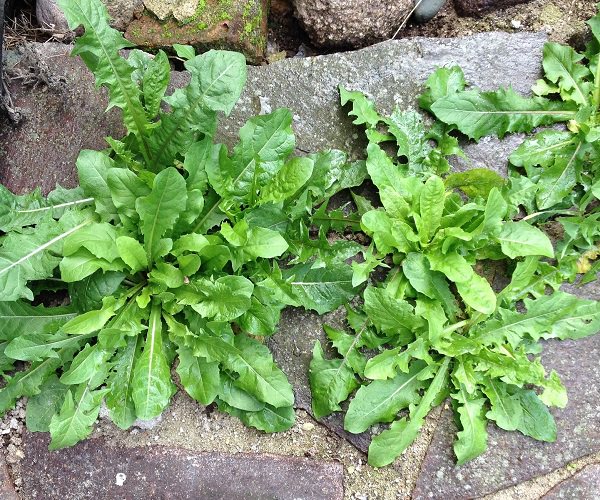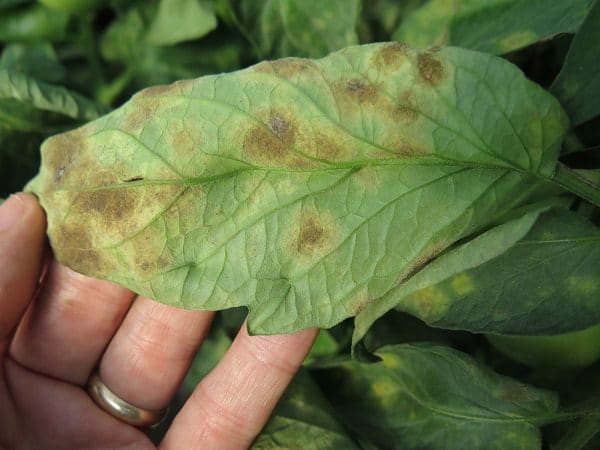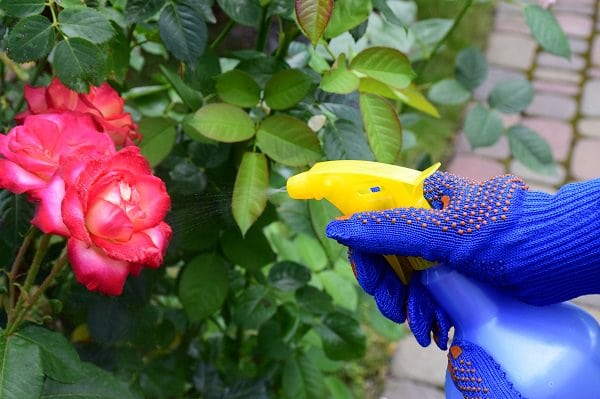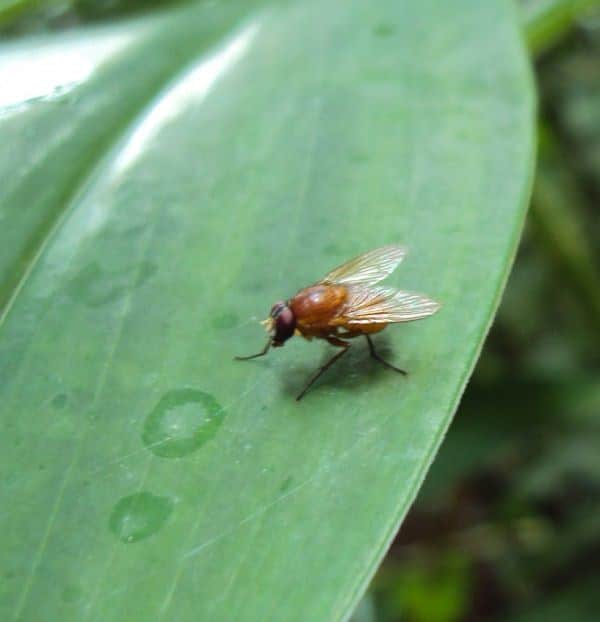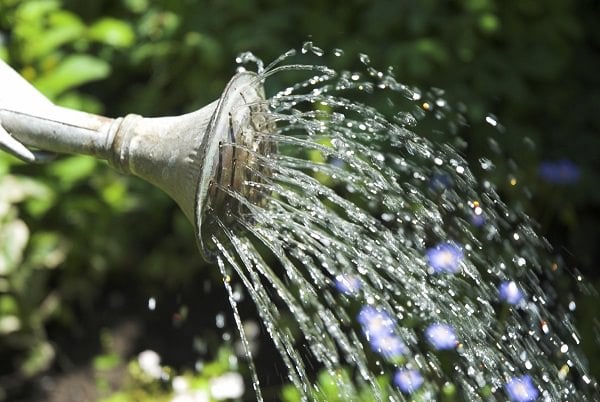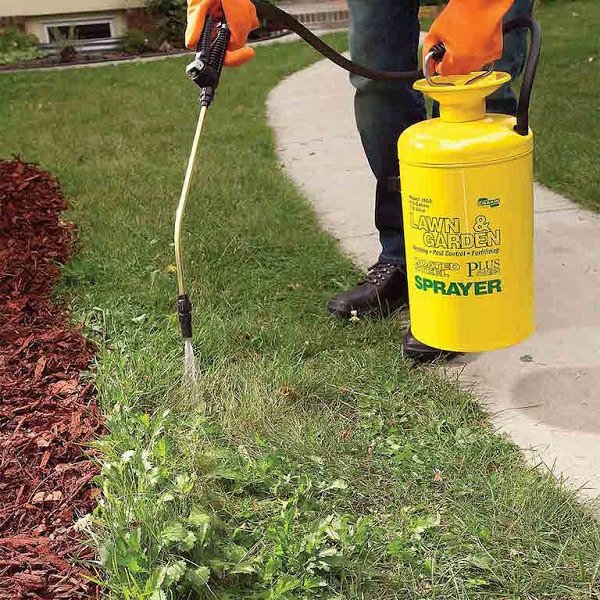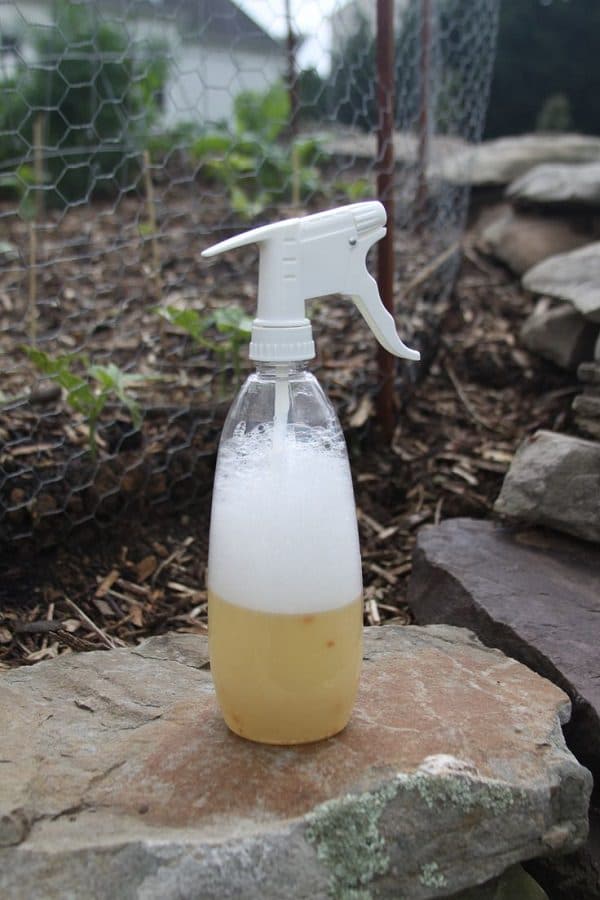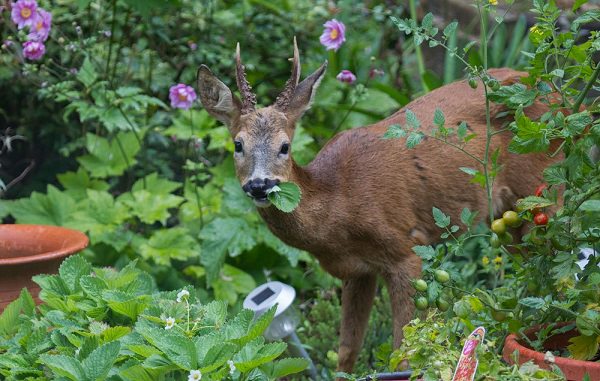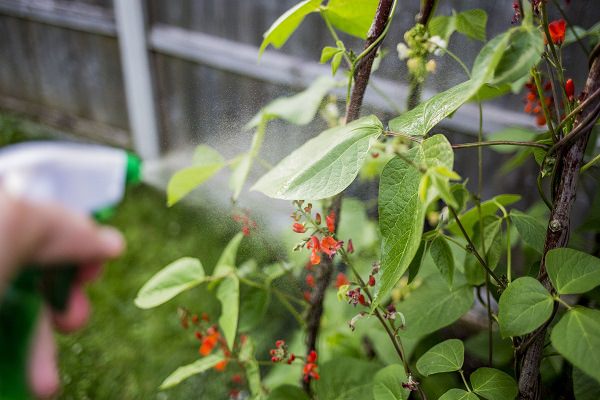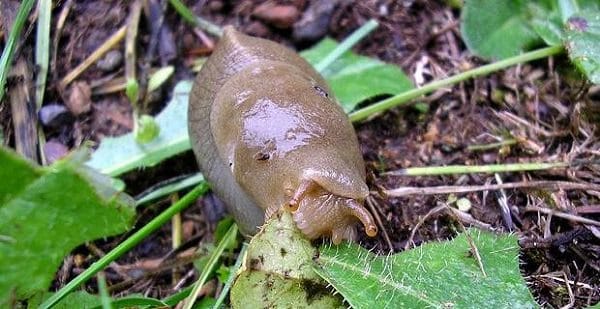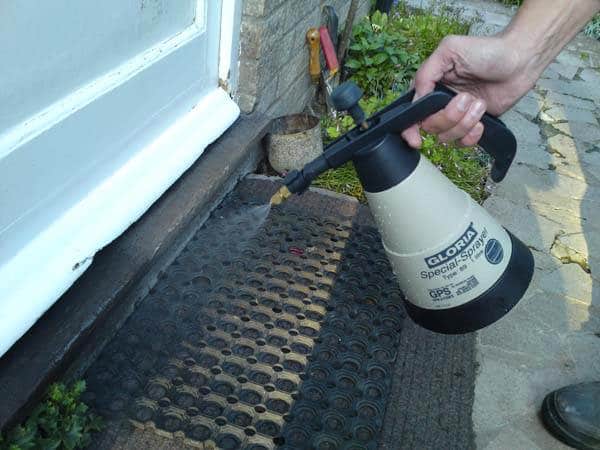Though it might sound absurd at first, there are many Garden Safe Detergent Uses for Plants that you can try in your garden!
Detergents are mainly used for clothes and cleaning purposes but have you ever gave a thought about using them in your garden? If you haven’t, then this article has everything on Garden Safe Detergent uses for plants and more!
1. Eliminate Pesky Weeds
That bottle of detergent lying in your laundry room might just be the weed management solution you need! A combination containing half a cup salt, one-gallon vinegar and a few spurts of laundry/dishwashing detergent can rapidly destroy invasive weeds within a span of 2-3 hours, maximum!
Check out our article on killing weeds magically here!
2. Control Molds
The signs of mildew can ruin your celebration of having healthy plants in your garden. It can get invasive over time, and you need to act fast before it takes over and weakens your plant. Here is what you need:
- One spoonful baking soda
- Half a spoon liquid soap
- A gallon of water
Water your plants well before spraying this solution over the affected area. Also, try the Garden Safe Detergent on one leaf before spraying it on all leaves of the plant.
3. Promote Growth of Rose Plants
Roses are difficult to maintain sometimes, especially when it comes to the blossoms. One way to ensure your rose bushes are getting the care they need is by using a diluted detergent spray on the foliage every once in a while. Do this every other week to remove seasonal pests, break soil resistance, and allow fertilizers to penetrate into inner layers of the soil for deep nourishment. Here is what you need:
- Two and a half spoon of vegetable oil
- Two and a half spoon of dish soap (Without degreasers, perfumes, and dye)
- A gallon of distilled water
Mix them well and spray over the bush. Try on a small area. If the leaf turns yellow, decrease the strength of the solution by adding more water.
4. Trap Fruit Flies
You spend hours tending those tomato plants and wait eagerly for them to form bright, fleshy fruits, and then you discover tiny fruit flies wrecking them away to glory. Unfair, right? Well, a flourishing crop of fruits attracts a large population of flies every season. These pesky creatures suck out the vital plant sap and cause excessive damage by feeding. Additionally, they transmit viral and bacterial diseases to otherwise healthy plants as well.
While store-bought insecticides are a surefire solution, they are not suitable for organic farming. That is where Garden Safe Detergent comes into the picture. Diluted liquid soap or dishwashing detergent is a low-cost tool that doesn’t harm your precious plants and still manages to trap the flies effectively.
- Mix 6-8 drops of detergent into a bowl containing white vinegar and place it in your garden.
- The unmistakable smell of vinegar will attract the flies but the soapy solution will prevent them from flying away.
5. Establishing New Areas
The main challenge of establishing new areas in the garden lies in mixing the planting medium with water. This is especially true for those times when you’re working with peat moss or new soil. The latter often has a hard surface that tends to resist water. To do away with this obstacle:
- Add one-two drops of laundry detergent or liquid dish soap to the water.
- Dilute the Garden Safe Detergent mixture further and then apply it to the new soil.
- As a natural surfactant, the detergent breaks down surface tension and allows the new soil or peat moss to mix with the water properly.
- This small measure simplifies the process of planting new grass seeds or establishing fresh areas in the lawn.
6. Watering the Lawn
Garden Safe Detergent can be used to make water even wetter. Yes, you heard that right! Ask any landscaper and they will tell you the importance of watering lawns. Grass develops an unsightly brown hue when left too dry. If a lawn is not dethatched adequately, the surface turns hard and impenetrable. Hence, water is not capable of permeating deep down into the soil to access the grassroots and nourishing them. Here’s where detergent can help:
- Add it up to half or full teaspoon per gallon of water and mix it in a hand sprayer to treat your lawn.
- The surfactant property of detergent acts to break down surface tension on the grass, allowing the water to percolate down the most resistant of soils and reach the roots.
- Automatic sprinklers are more productive at soaking the turf.
7. As a Spreader/Sticker
Using a laundry detergent or liquid dish soap is a smart way to improve the performance of spray-on disease solutions. When mixed with fertilizers, herbicides or insecticides, the mild detergent or dish soap enables the chemicals to adhere and penetrate the grass/soil better. It’s recommended to use detergent instead of liquid soap, as it has better surfactant properties and breaks down easily while providing phosphates required for the growth of the plants.
Tip: Mix 4-5 drops of liquid soap/detergent to the fertilizer before applying it.
8. Repel Deer
Cherubic and picturesque from a distance, deers can be a major threat to your garden bed. These seemingly harmless animals gnaw away at your foliage and trample your perfectly lined grass, thereby ruining all your efforts in the process.
- Keep a bowl of any strong smelling detergent mixed with water in the center spot near vulnerable trees and shrubs.
- The strong fragrance of the detergent offends the deer’s dainty sense of smell and keeps them away from that plant.
9. Kill Bugs
Dishwashing liquid is a low-cost alternative to costlier, chemical insecticides. It can be used to deal with non-serious infestations of common garden pests such as aphids, mealybugs, spiders mites, and thrips.
- Mix a cup of water and teaspoon each of the Garden Safe Detergent or liquid dish soap and vegetable oil.
- Carefully apply this blend onto affected and healthy plants.
- Before applying, make sure to use the blend on a small part of the plant. If the foliage wilts or turns brown, refrain from further use.
- Avoid the application if the temperature outside is more than 90 F (32 C).
If plants show tolerance to the detergent, apply it repeatedly over a week, to control the burgeoning pest population effectively. Over time, the spray will remove the wax coating of the insects and cause them to desiccate and die.
10. Stop Slugs and Snails
First thing after a downpour, gently pick off the slugs and snails from your plants and drop them into a bucket of detergent and water. The soapy mixture will dissolve the membranes of the insects, and disrupt their osmotic balance, causing them to die eventually. For best results, do this every morning.
11. Kill Ants and Roaches
There is no need to use toxic chemicals to eliminate ants and roaches from your favorite plants. Just mix some detergent and water in a spray bottle, then shake well to mix and spray it instantly on that creepy crawlies to kill them off. The biodegradable chemicals of the Garden Safe Detergent will degrade easily without disrupting the pH balance or nutrient profile of the soil.


